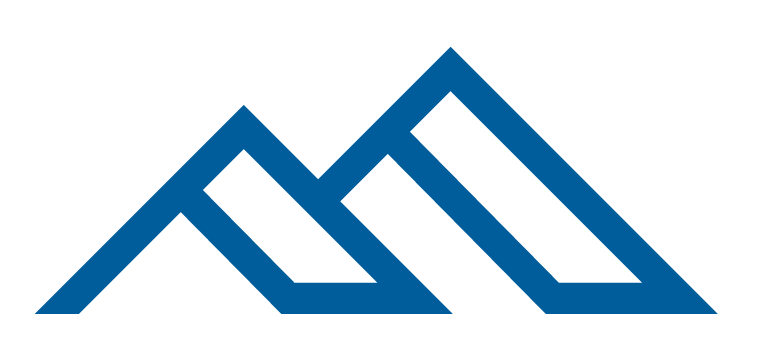I Wish I Had Known: Anthony Kousmanidis

Anthony Kousmanidis works in Financial Due Diligence (FDD) for Ironsides Advisory as a Senior Associate. Prior to joining Ironsides, Anthony worked in FDD at KPMG and PWC’s international tax practice. People who have worked with Anthony describe him as diligent in his work, thoughtful, and always quick to laugh. He is also a member of Private Equity Primer’s Training Advisory Committee.
We sat down with Anthony to hear about his career in FDD.
Deal Guide: How did you come to work in FDD?
Anthony: I majored in accounting and minored in finance and actively participated in my school’s investment club. Investing has always been a passion of mine. Over time, I explored various career paths that could merge my accounting background with my interest in investing, ultimately leading me to deal advisory. While I was confident that I wanted to be in deal advisory, I wasn’t sure which group within would be the best fit.
I began my career in PwC’s international tax practice—at the time, it was common to start in audit or tax before transitioning into deal advisory. As I networked with deal professionals and reached out to mentors for guidance, I gained a deeper understanding of the different teams within deal advisory. Through a conversation with an FDD professional at KPMG, I realized that FDD aligned perfectly with my interests due to its dynamic nature of the work, the constant learning opportunities, and the ability to analyze deals from a financial perspective made it an exciting fit.
During my conversation with the FDD professional at KPMG, the deals market was booming, and KPMG was actively expanding its deal advisory group. Shortly after our conversation, an opportunity presented itself to join their FDD group. KPMG’s commitment to training young professionals in the deal space was obvious, with them sending us to offsite seminars where I took Private Equity Primer’s M&A Bootcamp course.
Deal Guide: What did you wish you better understood prior to working on your first FDD reports?
Anthony: There are many things I wish I had known before starting, and I continue to learn new things every day. Looking back, I’ve found that getting familiar with certain key areas early on can make a big difference. Here are a few I recommend focusing on from the start:
Ask the client about their investment thesis on the industry and Target: Understanding their perspective allows us, as advisors, to develop meaningful, tailored analyses that address key questions and provide deeper insights into their potential investment. Some best practices that have helped me in this process include:
During a kickoff call with a client for a potential new platform, I like to ask about their chosen industry, their approach to evaluating potential Targets, the geographic regions they are focusing on, and other key investment criteria.
One tool I use and would recommend to anyone in this space is Private Equity Primer’s Foundational Questions©, which is covered in their M&A Bootcamp training.
I ask myself how does our work integrate into the client’s process: I gained insight into how our client’s leverage our deliverables—both excel databooks and reports—as well as the third parties that rely on them and the reasoning behind it all. When I first started, I had a high-level understanding of why the client needed our services. However, it wasn’t until I completed Private Equity Primer’s M&A Bootcamp that I truly grasped the bigger picture of what goes into a deal.
Understanding our role within this broader transaction team gave me a deeper appreciation for the importance of our work. It also helped me adopt the perspective of our counterparts, enabling me to think like an investor. By anticipating the questions they might ask, I can position us as strategic advisors and ensure we deliver the highest-quality work possible.
Deal Guide: What advice do you have for managing or working with offshore resources?
Anthony: First and foremost, it’s important to note our offshore team members are an integral part of the team, and should be treated as if they were sitting next to you every day. Offshore resources play a crucial role in a deal team’s success and should be valued accordingly. I make an effort to build relationships with those I work with, not only because it strengthens collaboration but also because I genuinely enjoy getting to know the people I work with. My philosophy on work is that since we spend a significant portion of our waking hours at our jobs, it’s essential to enjoy the people we work with. I like to start every call by asking how they’ve been, any upcoming plans, or what they did over the weekend—just as I would with colleagues in the office. I believe that fostering strong relationships with colleagues brings out the best in both ourselves and each other.
It’s essential to establish dedicated hand-off times to review completed work and outline next steps with your offshore team. Due to time zone differences, these meetings can sometimes be late for those in the U.S. or very early for offshore colleagues, which can be challenging for both sides. To ensure a smooth workflow, it’s important to be transparent, respectful of each other’s time, and collaborate to find a schedule that works best for everyone.
When a deal kicks off, I like to provide the offshore team with an overview of the client, the industry, key deal considerations, and important Target metrics such as LTM revenue and EBITDA. This helps ensure alignment on priorities and a deeper understanding of the deal’s context (see Private Equity Primer’s Foundational Questions©).
Providing feedback throughout the deal process is far more effective than waiting until the deal concludes. Ideally, conducting reviews after each deal would allow the team to analyze the deal as a whole, helping to optimize and improve future work. However, given the fast-paced nature of deals and the constant influx of new deals, dedicating time for a formal review after every deal can be challenging. Offering feedback in real time ensures issues are addressed while they are fresh in our minds and allows for immediate adjustments to enhance ongoing work.
Always include the offshore team in all email communications with the client and Target. This keeps them informed of key updates throughout the day and minimizes follow-up questions on requests that may stem from emails they were not originally copied on.
Deal Guide: What did you wish you knew earlier in your career?
Anthony: Don’t put too much pressure on yourself. When starting your career, it’s easy to believe that your bosses expect you to know everything and never make mistakes—but that’s simply not true (at least in my experience). When I first started, I felt the need to be perfect and have all the answers for the team, the client, and myself, which only created unnecessary stress. Looking back, I realize I should have embraced not knowing everything, as it’s a key part of growth. Now, when I face a question I can’t immediately answer, I see it as an opportunity to learn—whether by reaching out to my boss or seeking guidance from a mentor. This shift in mindset has made my daily work more enjoyable, turning every challenge into a chance to improve myself and those around me.
Now, onto my next point—a practical way to approach your first few years.
I always encourage new staff to ask any and all questions, no matter how small they may seem. Early on, I hesitated to ask questions at times, and I’ve realized that it only hinders growth—for both the individual and the firm. Some of the best bosses I’ve had stood out because they genuinely cared about their employees’ development. If I encountered a difficult situation or had questions, they didn’t just give me an answer—they took the time to hop on a call or sit down in person to work through it live.
Many times, I started by shadowing them, simply observing how they approached a problem. Then, when a similar situation arose in the future, I would take the first pass at the analysis and review it live with my boss for real-time feedback—what I did right, how I could improve, what was incorrect, and why.
Finally, I highly recommend shadowing whenever you have downtime. Ask a fellow staff member, manager, or even a director if you can sit in and watch them work through an analysis in real time. If possible, get a copy of what they’re working on and try solving it yourself alongside them. Comparing approaches can provide incredible insights into problem-solving, efficiency, and critical thinking.
Have fun! This is an exciting and dynamic field where you’ll work alongside brilliant professionals with diverse expertise—from private equity and tax diligence to legal, commercial, and beyond. You’ll gain valuable exposure to various industries and business sizes, constantly learning and expanding your skill set. It’s the kind of environment I always aspired to be in, and I’m grateful every day to collaborate with talented individuals who bring unique perspectives to the deal space.
